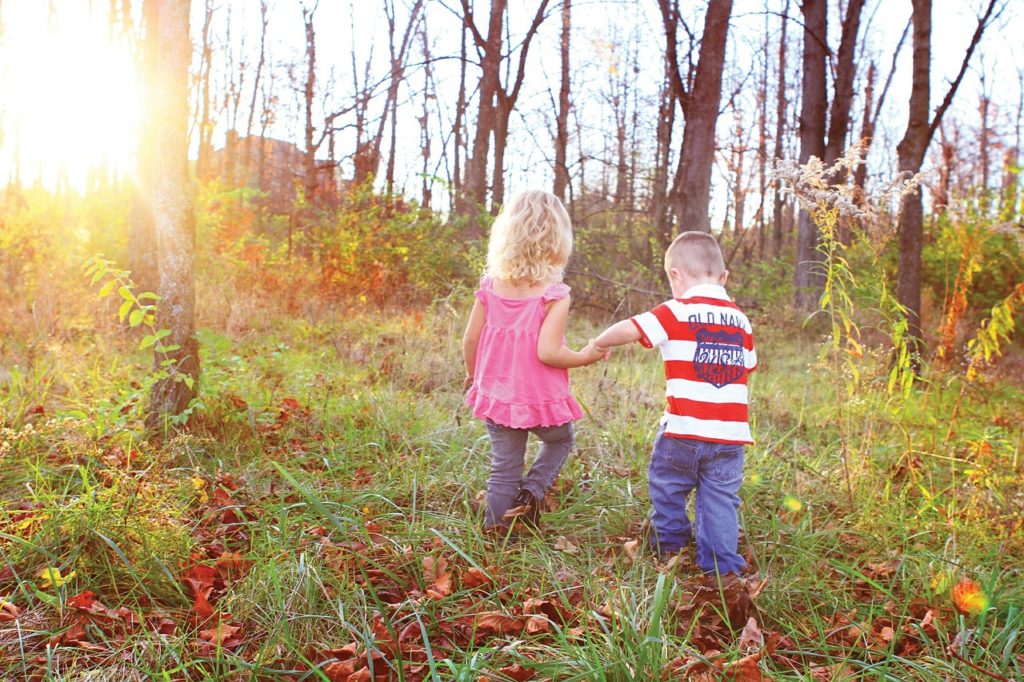As much as we’d hate to compare our generation with today’s kids, we can’t help but lament the fact that toddlers play more often on an iPad than at a playground. As a result, they grow up to be teens that are so attached to social media, using it to gain validation from their peers and to determine their self-worth.
According to experts, the first fourteen years of a child’s life are crucial for establishing a connection with the natural world. As such, parents need to instill nature appreciation in their kids as early as possible. Though we can still develop a deep connection with nature as adults, our case is different because we didn’t grow up surrounded by so much advanced technology. Today’s youth, on the other hand, are more vulnerable to losing their connection with nature as they get older, because they’ve been accustomed to electronic gadgets and online entertainment.
Fortunately, outdoor activities are still heavily promoted despite digital technology’s continuous advancement. So if your kid or teen has been cooped up indoors for pretty much all their lives, now’s the time to open their eyes to the beauty of the natural world.
Set an Example
Children tend to imitate what their parents do, so the best way to raise them as nature-lovers is to be a nature-lover yourself. Show your immense interest in the great outdoors, and it’ll pique their curiosity too. Every weekend or so, take time off to explore nature, even by just going to the park or lounging in your garden. Leave your phones in the house, and completely focus your attention on your surroundings. Speak positively about nature, describing the scent of the flowers, the song of the birds, the relaxing rustle of the leaves, and the nourishing sunlight.
Get your hands and feet dirty. Walk barefoot on the grass, making sure to avoid saying that it’s dirty or disgusting. As your kid or teen watches you do this, they’ll grow curious about what’s it like to experience it themselves.
Once you successfully get your children outside, teach them to adopt an explorer’s mind. You don’t have to take them to a lake or to the mountains to instill this mentality. Just go anywhere with plenty of natural elements, such as a resort, their grandparents’ countryside home, your community’s park, or your own landscape garden. Give your children time to wander and discover new things: an insect, a wildflower, a weed, gravel, etc. Don’t be afraid of their hands getting dirty; it’s part of learning and being a good explorer!

Allow Them to Collect Natural Finds
Many of us used to collect seashells from the beach, so allow your kids to do the same, as long as the area you’re exploring allows such acts. Let them pluck out petals, pick up twigs, autumn leaves, or random finds like an odd-looking rock or a dead bug. They can observe these treasures once they return home, or research about them on the internet, giving a better purpose for their gadgets. If they take home an animal, you can provide a temporary terrarium for those, then release them after a time. Let your kids know that observation time is limited because the animals need to return to their natural habitat.
Enroll Them in a Scout Ranger Program
There is a free Scout Ranger program that inspires children to visit and preserve national parks. They’d be going on thrilling excursions, and earn cool Girl or Boy Scout badges after completing at least 10 hours of National Park service. Their trips will range from wildlife restoration to night sky exploration. They may also study actual fossils with a park geologist.
Consider the U.S. Forest Ranger Program
For middle-schoolers, the U.S. Forest Ranger Program will be more appropriate and exciting. The program will teach them essential survival skills and staying safe in the woods. They must complete the JFR Adventure Guide – which comprises of activites including measuring distances on a map and observing proper outdoor ethics, such as not leaving any traces – to be a certified Junior Forest Ranger. If they are an overachiever, they may also receive an official JFR pin and membership, which would permit them access to the digital JFR clubhouse.
Try Hunting
There is of course a lot of controversy surrounding this activity, given that it involves killing animals. But hunting isn’t solely for leisure. Instead, it is a way for conservationists to promote respect for nature and natural order, not taking more than what you need, appreciating nature’s bounty and keeping populations healthy, and following the rules and regulations set by the authorities.
Hunting, in fact, aims to stop poachers, who illegally kill animals for profit. Everything involved in hunting, from popular hunting stores to designated sites, support the conservation and protection of wildlife. Site owners limit the number of kills so that the wild animals can reproduce again and flourish.
Nature is truly a gift, but it is superior to us, so kids today should learn to respect and love it. Technology is cool and all, but nothing compares to the reward nature gives us when we explore it.

